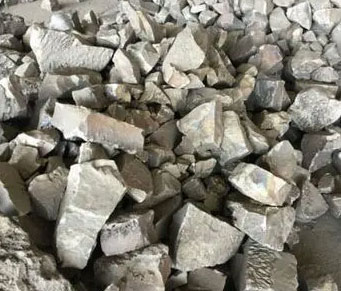
Silicon Manganese Alloy, commonly referred to as SiMn, is a vital compound that has gained significant recognition in various industries for its remarkable properties. This article explores the characteristics and applications of SiMn, highlighting its role in empowering industries with strength, versatility, and improved performance.
Silicon Manganese Alloy is a composite material comprising primarily of manganese, silicon, and trace amounts of other elements such as carbon and iron. It is produced through a controlled smelting process, combining high-grade manganese ore with silica and carbon sources. SiMn exists in various compositions, allowing for its customization based on specific industry requirements.

SiMn plays a crucial role in steelmaking as an indispensable deoxidizer and alloying agent. It effectively removes oxygen from the molten steel, preventing the formation of oxides and impurities. Additionally, SiMn enhances the mechanical properties of steel by improving its hardness, tensile strength, and wear resistance. The addition of SiMn in steel production facilitates the production of high-quality steels used in construction, automotive, and machinery sectors.
SiMn finds extensive use in the production of cast iron as a powerful nodulizing agent. When added to the molten iron, SiMn promotes the formation of graphite nodules, transforming the flake graphite into a more desirable nodular form. This nodularization process significantly improves the mechanical properties of cast iron, including increased ductility, impact resistance, and thermal conductivity. Consequently, SiMn helps produce high-quality castings for applications in automotive, pipes, and machinery industries.
SiMn is a vital component in the production of various alloys, such as low-carbon ferromanganese and low-silicon manganese. These alloys find applications in stainless steel production, non-ferrous alloy manufacturing, and the production of specialty steels. SiMn's addition enhances the corrosion resistance, strength, and heat resistance of these alloys, making them suitable for critical applications in aerospace, energy, and infrastructure industries.
SiMn is widely utilized in the welding industry as a flux additive. The presence of silicon and manganese in SiMn improves the fluidity and wetting properties of the welding flux. This results in improved weldability, better bead formation, and reduced spatter during welding operations. SiMn's role in welding applications ensures strong and reliable joints in diverse industries, including construction, shipbuilding, and automotive manufacturing.
The exceptional properties of Silicon Manganese Alloy position it as a valuable material with promising future prospects. Ongoing research and development aim to enhance SiMn's properties, including grain size control and purity, to meet the evolving demands of industries. As SiMn continues to prove its efficacy in steel production, cast iron manufacturing, alloy production, and welding applications, its utilization is expected to grow further, driving improved performance, cost-effectiveness, and sustainability across various sectors.
In conclusion, Silicon Manganese Alloy empowers industries with its strength, versatility, and performance-enhancing capabilities. Its applications in steel production, cast iron manufacturing, the alloy industry, and welding applications highlight its significance. With ongoing advancements and its valuable properties, SiMn is poised to play a vital role in shaping the future of industries, contributing to the development of high-quality materials, efficient manufacturing processes, and technological progress.

Write a Message